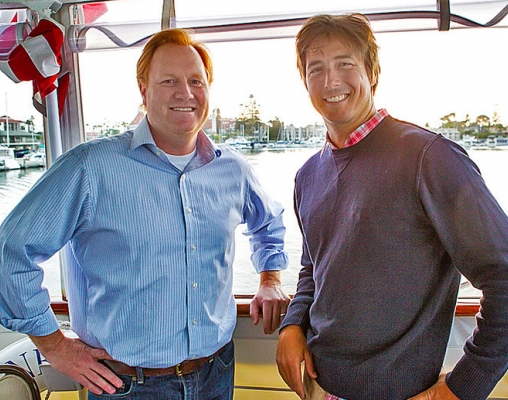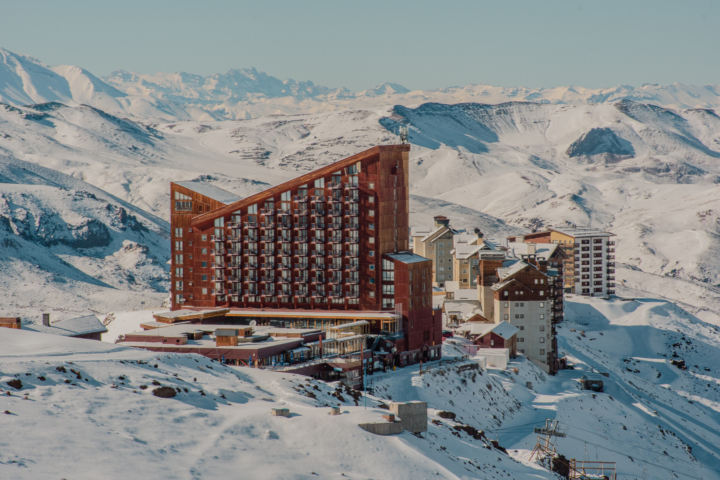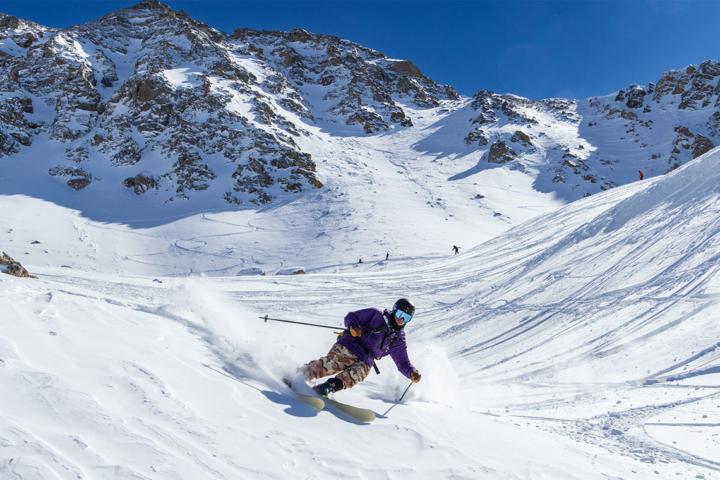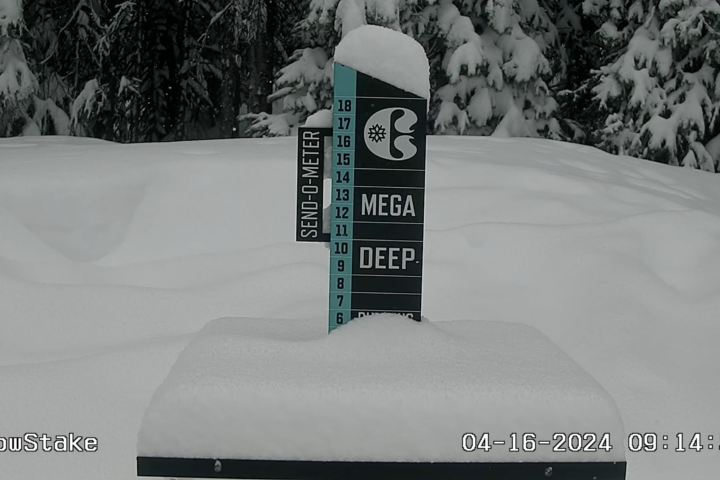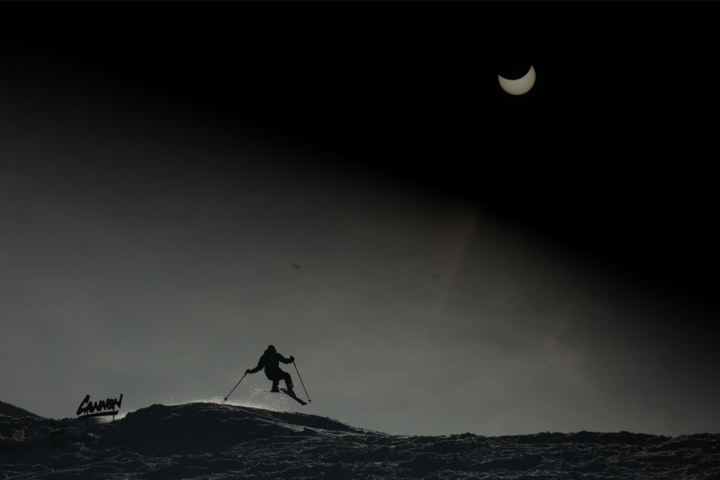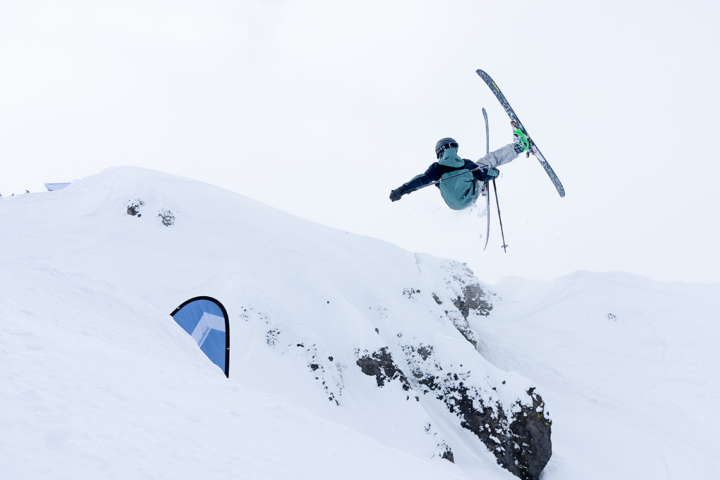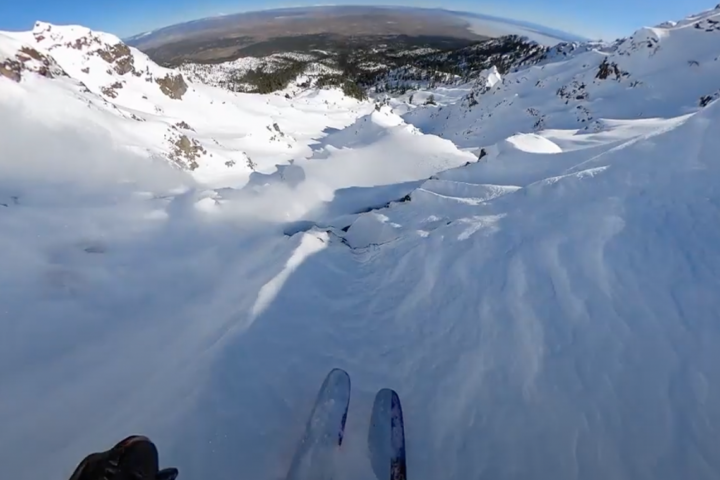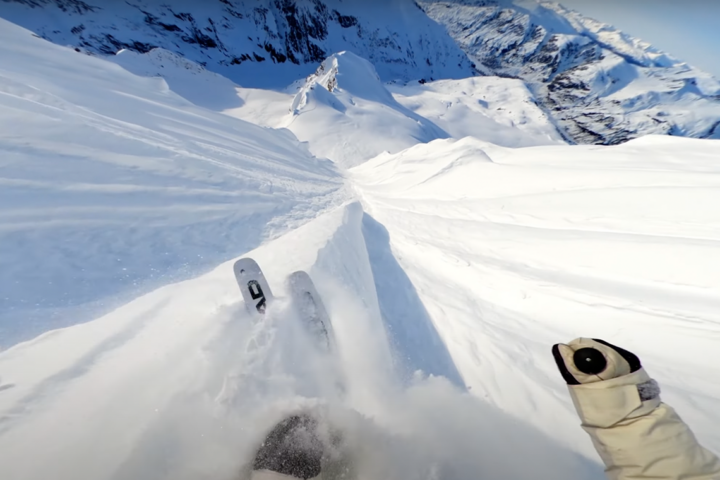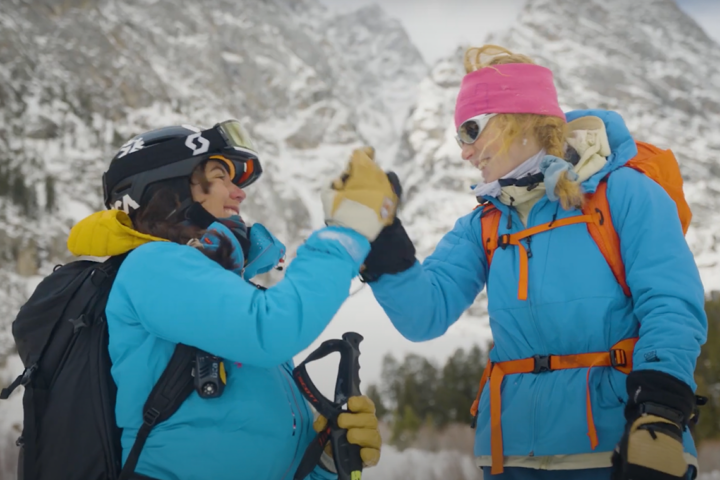To put it simply, Mike Jaquet is kind of a big deal. A Sun Valley native and former competitive skier, Jaquet founded Freeze Magazine in 1996 and the U.S. Freeskiing Open in 1998. While Freeze shut its doors in 2004, and the U.S. Open in 2009, these entities were two of the biggest driving forces in the sport of freeskiing. Freeze was ultimately purchased by TransWorld Media, where Jaquet took a job as Head of Marketing and Sales. Some time later, Jaquet shifted gears and took a job at College Sports Television. Two years after signing on with CSTV, Jaquet became Vice President of Television and Properties Sales at CBS Sports Network. In his time at CBS, Jaquet played an instrumental role in network sales, driving significant growth and acquiring key programming, including the Professional Bull Riders Tour (PBR).
In April of this year, Jaquet announced he would be leaving the television world to return to the snowsports industry as CMO of the USSA. In his capacity as CMO, Jaquet takes over leadership responsibilities for “sponsorship, licensing, suppliers and media sales and marketing for the Olympic sports organization and its U.S. Ski Team, U.S. Freeskiing and U.S. Snowboarding brands.” Jaquet returns to freeskiing having amassed a wealth of knowledge in aspects of sales, marketing and media management at the national level. Thus, we have an individual who helped grow freeskiing from its very inception, who is once again in a position to help facilitate further growth. As freeskiing approaches its Olympic debut in Sochi, Russia, Jaquet, the U.S. Freeskiing brand and the USSA are hard at work strategizing. Following U.S. Freeskiing Committee meetings that were held recently in Park City, UT, we phoned Jaquet to discuss his return to wintersports, and his thoughts on the current state of U.S. Freeskiing.

USSA Chief Marketing Officer Mike Jaquet with Olympic champion Jonny Moseley. (Mark Epstein)

Freeskier.com: With all your work at TransWorld and in TV, you’ve been away from skiing for a while. What most excites you about coming back to the world of wintersports?
Mike Jaquet: Far and away the most exciting thing is coming back to the people. It’s a great industry with great people in it. It’s a family for me. Any first job, no matter what the industry, you make connections that you’ll have the rest of your life. But when that first job is in the ski industry, and especially when your first job is publisher of Freeze Magazine, I made great friends that I traveled the world with, skied the world with… I went to amazing places with amazing people throughout that career, and I’m excited to come back to the people that I’ve known for so long, and that quite frankly I missed. That’s the short answer.
The sport of skiing overall is in my DNA. Living in the mountains growing up in Sun Valley, and coming back to the mountains now, and being able to raise my kids the way that I was raised in a ski town—these things are great additions to the core thing that I’m most excited about, which is getting back into what I consider my big family of the ski industry.
FS: You recently held US Freeskiing Committee meetings. What were some of the key takeaways from your discussions?
MJ: Number one, I think Tom Yaps [Halfpipe/Slopestyle Subcommittee Chair, USSA Freestyle & Freeskiing Sport Committee] is doing a great job. Everybody in the freeskiing community should feel good about the leadership we have on that Committee, led by Tom, but also from our staff. Abbi Nyberg is probably someone that not a lot of people know her name, and she’s doing unbelievable stuff for us. She’s keeping the whole thing organized, she’s helping Tom, she’s working with the AFP on the criteria for selections and the team, and keeping everybody working together and encouraging collaboration.
What I was most excited about was that there was tremendous participation from the regional club directions. Freeski programs on the club level are really blowing up, and I’ve been out of the industry for seven years so I haven’t been able to watch this evolve—and I understand it’s only a couple of years into the evolution of it all—but when I left, the only freeski programs existed at ski academies, the CVAs of the world, but now at just about every ski resort we have really great youth program that extends through all ages, not just elite level high school stuff, but up and down, every age group, and they’re very well organized, they’re well coached, they’re well resourced and they have great community support.
What that does is it makes you feel very confident about the future of the sport. We’re doing a great job of bringing new kids at a very young level into the sport, and providing them not too much structure, because we certainly don’t want to stifle things, but just giving them access to the mountain, to the terrain park, to coaching, to other skiers… just being able to go ski around with people is huge.
When we first started Freeze Magazine, there were literally 20 to 25 people doing this sport at maybe three or four resorts: Whistler, Breckenridge and Squaw, and a little bit back East but not much. In time, it obviously developed into a worldwide thing, and this whole infrastructure that exists now really impressed me. And for all those people to come to Park City on their own dime last week to volunteer, and participate in these meetings, all with a great attitude of pushing the sport to the next level, it’s so great. These are people set on developing future Olympians and world champions and X Games champions, and also making sure that kids are getting into the sport and getting the right opportunities and going in the right direction.
None of that existed seven or eight years ago, and it’s great to see. These clubs are vital to the future of any sport. The sport is only as strong as your grassroots organizations and there’s a lot of strength there.
FS: Freeze Magazine once produced stickers declaring “FIS sucks.” At USSA, you’re now walking hand in hand with FIS. So you’re coming full circle in a way with a great deal of experience under your belt. Do you feel you’re in a position to influence the FIS in their decision-making, having witnessed the interplay between freeskiing and FIS for so long?
MJ: I’m brand new to the job, so I’m not in the position to influence them personally. However, our organization has a great deal of influence on FIS, especially Bill Marolt, our CEO, who’s on the Executive Committee of FIS. Certainly American skiing, no matter the discipline, should feel very comfortable about our representation with FIS, which has been great. Bill has been very influential and he’s done great work on behalf of all of our sports, not just freeskiing, not just alpine, but all of them, to make sure our voices are heard. He’s ensuring representation for American athletes, American manufactures, American resorts and grassroots programs and so on down the line.
So there is an infrastructure in place where Americans’ voices are heard. It’s always going to be a push and pull, and I’ll commend FIS greatly for adding these sports [ski superpipe and ski/snowboard slopestyle] to the Olympics—they didn’t have to do it, they have a ton on their plate as it is, and there were a lot of questions about whether or not it was the right call. But they’re in the best position to get our sports into the Olympics, which is what we all wanted, they were successful in doing so, and I have to give them a tremendous amount of credit. It was not an easy thing for them to do with the IOC, and because of that, all of us in the freeskiing community who love the sport so much get to see our sports represented on the largest possible stage in the world.
Does that mean we should sit back now? No. And I wouldn’t expect the freeskiing community to be completely complacent with what we’re doing at USSA and at U.S. Freeskiing. These sports should always look for the next big thing. How do we evolve, how do we progress? That’s what makes our sport so special, so we should always be looking ahead. These conversations about freeskiing and the Olympics will always be spirited onse, but we should always keep in mind what great progress we’ve made.
I’m excited personally and professionally. It’s great to be back and I see a tremendous amount of opportunity. I think as a sport we’re in great shape, because we’ve reached the ability to have the sports in the Olympics, people should be very excited about that. But, there’s lots of work to be done in terms of building out infrastructure and sustainability, keeping the sports progressing, demanding more of our judges to match the progression of the sport. Certainly there’s plenty to do, but for me personally, having gotten involved in this industry when the whole thing was starting, and seeing it be born, I’m feeling really great about where we are today.
FS: How will the US Freeskiing team be represented at Sochi, and what role will you play in the advancement of future U.S. Freeskiing athletes?
MJ: I’m lucky, first and foremost, because we’re going to have a lot of success in Sochi. We invented this sport in America, so we have a head start on infrastructure and facilities and terrain parks and we have a great system of peer-to-peer coaching and evolution. We have a great attitude about evolving the sport and tricks here. Those attitudes will keep us on top certainly though Sochi and likely a bit beyond.
The biggest question is whether or not we can maintain that leadership position through Korea in 2018, and that’s why I go back to the strength of our club programs. It really encourages me, it means we’ll have the group of guys who we all know, Wise, Kenworthy and Wallisch, etc, going to Sochi and they’ll be successful.
So who are our guys going to Korea in ’18 that will lead our team there? And that’s really the job of U.S. Freeskiing, making sure everyone at the elite level is ready to go and ready to perform at the next Olympics, but also to develop these future Olympians, and making sure the infrastructure is there to develop them because you can’t develop them a year out or two years out, it’s a much longer process than that. And again we have a head start, because these disciplines were born in the U.S., but we won’t always have that advantage of a head start, so that’s what we have to look out for and that’s what we’re tasked with: creating some infrastructure to continue to develop these top level athletes.
There will certainly be some bumps in the road with these sports, that’s just the nature of them, that we’re all aware of. The whole community is aware of bumps, like questions of judging for example, so we need to be a good strong voice for the sport, so that when we do go to Sochi, it’s fair, it’s a great representation of the sport—and it will be a great representation of skiing no matter what, just because it’s on a huge platform—but we need to make sure it’s a good representation of freeskiing as well, and USSA and U.S. Freeskiing, we can be really helpful there, to get the bureaucracy out of the way so the athletes can perform their best without having to worry about it.
